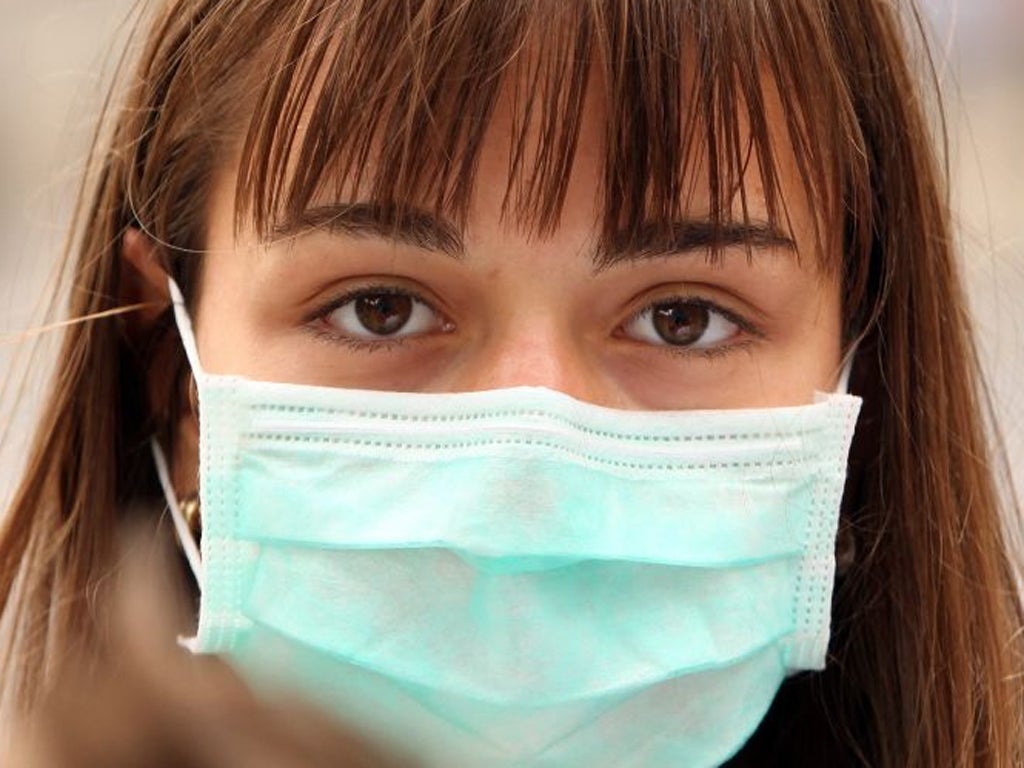Qatari with unknown virus receives NHS care

Your support helps us to tell the story
From reproductive rights to climate change to Big Tech, The Independent is on the ground when the story is developing. Whether it's investigating the financials of Elon Musk's pro-Trump PAC or producing our latest documentary, 'The A Word', which shines a light on the American women fighting for reproductive rights, we know how important it is to parse out the facts from the messaging.
At such a critical moment in US history, we need reporters on the ground. Your donation allows us to keep sending journalists to speak to both sides of the story.
The Independent is trusted by Americans across the entire political spectrum. And unlike many other quality news outlets, we choose not to lock Americans out of our reporting and analysis with paywalls. We believe quality journalism should be available to everyone, paid for by those who can afford it.
Your support makes all the difference.Doctors in Britain are battling to save the life of a man with a mystery fatal disease which appears to have come from the Middle East.
The 49-year-old Qatari is in quarantine at a National Health Service clinic in London, having initially been flown to a private hospital here from the Qatari capital, Doha.
When the private hospital was unable to treat him, he was taken to an unidentified NHS hospital.
The man has a severe new coronavirus - which causes the common cold but can also cause more severe illnesses, such as SARS (Severe Acute Respiratory Syndrome).
A man in Saudi Arabia with the only other laboratory-confirmed case of the virus died.
The Health Protection Agency, announcing the new case in the UK, disclosed that another man with an unidentified virus had died in the UK in the last three months. It said that at present there was evidence that that that case was linked to the current case in London.
However there have been reports of a severe respiratory illness circulating in Saudi Arabia.
The HPA said: "Coronaviruses are causes of the common cold but can also include more severe illness, such as the virus responsible for SARS (Severe Acute Respiratory Syndrome).
"This new virus, however, is different from any that have previously been identified in humans. Preliminary enquiries have revealed no evidence of illness in contacts of these two cases, including healthcare workers."
The NHS could not confirm who would pay for the man's treatment. The Department of Health said that the NHS would usually seek to recover the cost of treating unentitled parents from private medical insurers - if they have any. Britain does not have a reciprocal health costs agreement with Qatar, opening the possibility that taxpayers may end up footing a bill of tens of thousands of pounds.
Announcing the latest case, the HPA said: "We are aware of a small number of other cases of serious respiratory illness in the Middle East in the past three months, one of whom was treated in the UK but has since died. This person's illness is also being investigated although there is no evidence at present to suggest that it is caused by the same virus or linked to the other two cases.
"No other confirmed cases have been identified to date in the UK."
Professor John Watson, head of the HPA's respiratory diseases department, said steps were being taken to ensure that people in contact with the UK case had not been infected, adding "there is no evidence to suggest that they have."
Health experts are keeping the World Health Organization and the European Centre for Disease Control informed about the British case.
The HPA said there was no evidence anyone else in the UK had the disease, and was not giving travellers or the general public any specific advice about prevention.
Join our commenting forum
Join thought-provoking conversations, follow other Independent readers and see their replies
Comments